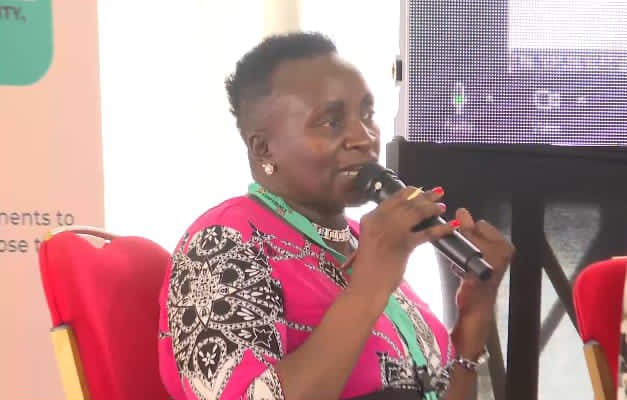HOMA BAY, Kenya, August 15, 2025 – The Institution of Engineers of Kenya (IEK) has called for the full digitalization of engineering approval processes across all 47 counties and the national government, a move aimed at cutting delays, improving transparency, and enhancing efficiency in project delivery.

Speaking at the event during the ongoing Devolution Conference in Homa Bay, IEK President Eng. Shammah Kiteme emphasized that adopting digital platforms would significantly speed up project approvals by eliminating bureaucratic bottlenecks that have slowed infrastructure development for years. The forum brought together engineers, ICT experts, policymakers, county leaders, and development partners to explore how technology can transform governance and service delivery.
“The shift to digital approvals is no longer a choice but a necessity,” Kiteme said. “Manual processes have not only slowed down construction timelines but also created loopholes for malpractice. Embracing digital solutions will ensure greater accountability and faster implementation of infrastructure projects that communities desperately need.”
IEK’s First Vice President Christine Ogut, who also addressed the session, underscored the importance of budgeting for digital transformation and ensuring equitable access to online services. She highlighted Kenya’s progress in digitizing public transport inspections, where most public service and commercial vehicles are now onboarded onto online platforms. “Equity in service access must guide digital reforms,” Ogut said. “If services are moved online, then they must be accessible to everyone, across counties, without discrimination.”

Ogut also raised concerns over cybersecurity and system resilience, noting that digital platforms face risks such as downtime and attempted breaches. She urged counties and the national government to build redundancy, backup systems, and strong security frameworks into digital infrastructure.
The session further discussed the importance of interagency linkages and data-sharing agreements to improve interoperability between county and national systems. Participants cited successful integrations in vehicle inspections, tax compliance, and insurance verification, which allow agencies to share real-time data and enhance service delivery.

The engineers stressed that digital transformation will not only strengthen accountability but also accelerate infrastructure growth by enabling smoother collaboration between national and county governments. If implemented, IEK noted, the reforms could unlock faster infrastructure development, reduce corruption risks, and position Kenya as a leader in technology-driven governance.






